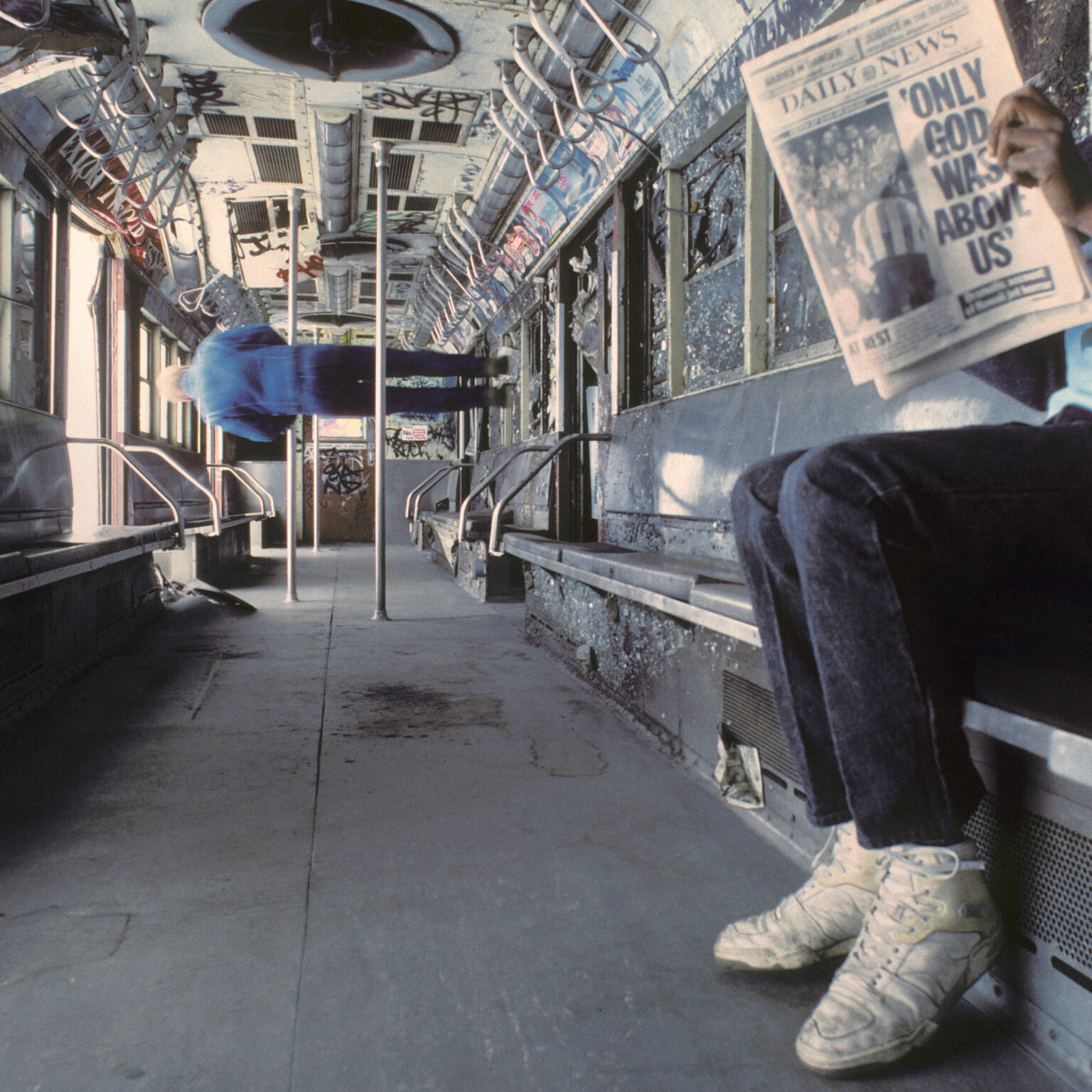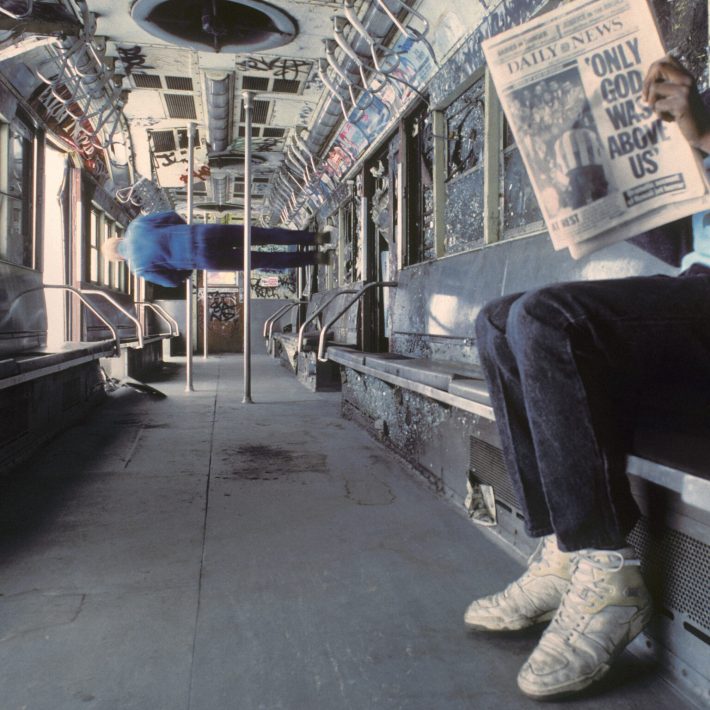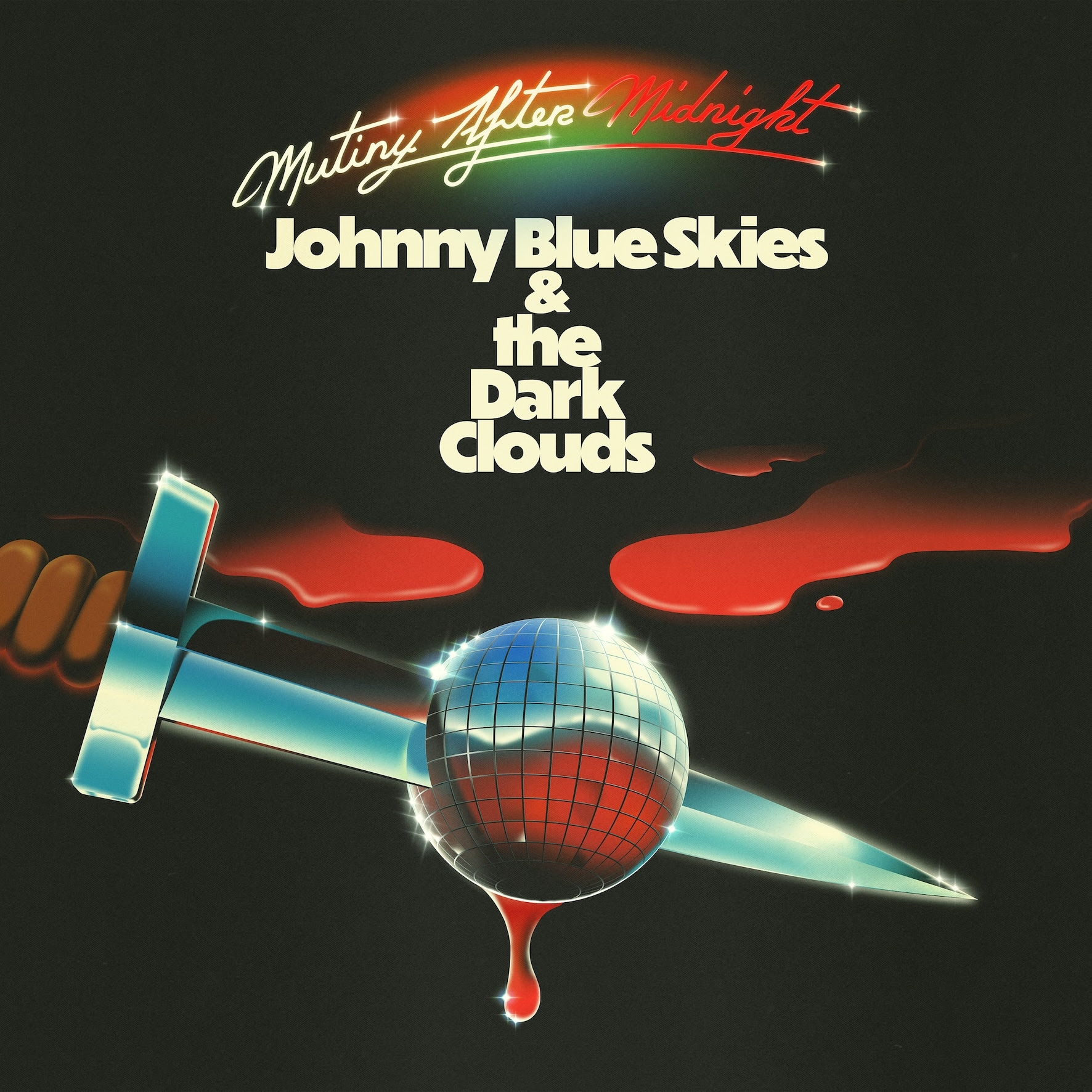- Columbia
- 2024
There were rules. Was there ever a manifesto? Not exactly, but Ezra Koenig at least gestured toward one. The idea was to establish some stylistic guardrails, to prevent Vampire Weekend from defaulting to easy rock-band tropes and to set them apart from their peers. As Koenig explained to the Denver alt-weekly Westword in 2008, the notion that band members were forbidden to wear T-shirts onstage to maintain the group's preppy image is strictly apocryphal. But "no trip-hop" and "no post-punk" were real. So was "no distortion."
"Not using distortion, it's not exactly a rule, but I have no interest in using distortion, and we've made a point of it," Koenig explained in that interview. "Our music isn't going to sound good with distortion, so let's emulate the music that we like that doesn't use distortion – because sometimes distortion can just cover things up. Of course, other times, it can create a vibe in its own right. It creates a sort of scuzzy sound that a lot of people have done brilliantly. But that's just not really our thing."
At the time, he was right. Early Vampire Weekend made a point to stand out among the blog-rock pack, and stand out they did. Few people in the late 2000s indie-rock sphere had a moodboard like this band's, and for most artists, combining influences like African pop, baroque classical, and ska would have been disastrous. But Koenig and Rostam Batmanglij were gifted as songwriters and producers, and Koenig was the kind of strong personality who creates his own forcefield of personal taste, who can transmute uncool elements into hip new frontiers by sheer force of will — not that he'd ever let you see him straining. He has an unflinching point of view that dares you to love or hate his whole deal, and plenty of people lined up on both sides of the divide. "Part of Vampire Weekend was always looking at what was supposed to be cool and doing something slightly different," Koenig told Zane Lowe this week. "I understood that even with these earliest ideas of Vampire Weekend, some people would find it fresh and some people would find it dorky."
So much of the culture-clashing that ruled the iPod era was loud and chaotic, but Vampire Weekend were never in step with Girl Talk, Sleigh Bells, or any other careening noisemakers of the late 2000s. They carefully curated their music to be catchy and punchy but also soft and refined, synthesizing rather than juxtaposing, ending up with songs complex enough to appeal to pop-minded music nerds but light and peppy enough to rope in their less adventurous friends. It's why the group's critics pegged them as frat-party entertainment a decade before they embraced a jam-band identity with the sandal-clad sounds of 2019's Father Of The Bride.
But Koenig is also averse to repeating himself, and he'd die before releasing an album that fit neatly into someone else's zeitgeist, so as his band blew up and became a popular influence in its own right, that original formula had to change. On 2010 sophomore album Contra, they laced their songs with samples and electronics but kept the skip in their step. On 2013's Modern Vampires Of The City, they moved away from the African influence, the youthful whimsy, and, indeed, the concept of the rock band itself, reframing Vampire Weekend as a "recording project," and ended up with lightly futuristic, deeply sighing artisanal pop. After a gaping six-year layoff and Batmanglij's amicable departure, Father Of The Bride was their most radical zag: bringing acoustic guitars to the forefront, rehabbing a whole new H.O.R.D.E. of disreputable influences, pondering a post-Trump, pre-COVID world via sunny backyard barbecue music. Surely they'd broken a few of those initial rules along the way, but never at the expense of the distinctive voice they worked so hard to develop.
At this point, the band's ethos is so well-defined that even a fuzzbox can't undermine it. Only God Was Above Us, set for release this Friday after another five years away, seems to acknowledge that we've reached the outer boundaries of the Vampire Weekend sound. Notably, it's the first album to double back across the band's career rather than venturing out into new territory. Perhaps even more notably, the album omits the fruits of Koenig's lockdown-era jam sessions with fellow founding members Chris Baio and Chris Tomson, which have been relegated to mysterious side-project status because they apparently don't jibe with the Vampire Weekend canon. Instead, the new songs revisit musical ideas from throughout their catalog: rapid-fire guitar riffs that bridge the gap between African pop and European classical, bombastic drum parts that call back to "Mansard Roof" or "Cousins," moody ruminations that evoke the deepest corners of Modern Vampires.
OGWAU can be seen as a retrenchment, a retreat from the last album's Phish worship into the sounds that ingratiated the band to Father Of The Bride haters. It's a classic "we're still that band you used to love" record. But to Vampire Weekend's credit, they're not just remaking "A-Punk" or "Hannah Hunt" here. The new songs mix and match ingredients from the old days, assembling them into new shapes, conjuring a sense of déjà vu but not stale repetition. Occasionally those pieces fit together strangely, as on "Connect," a breakneck fantasia that feels less like a song than a bunch of cool ideas stitched together. But the new tracks mostly succeed wildly, and they hold together as a distinct chapter, partially thanks to the noise that glues so many of them together.
The clamor is impossible to miss during the album's opening stretch. "Ice Cream Piano" builds from the tense quiet of its early verses into a ballistic joyride topped off with screaming electric guitar. "Classical" follows with the blustery clatter of a windy New York City afternoon and a blaring, discordant brass section. The graceful "Capricorn" at first seems like a reprieve from the bombast, but by the second chorus it's overwhelmed by a heaving mass of harmonic noise that sounds like heavy machinery coming to life. Later, "Gen-X Cops" blasts off with finger-in-socket Pixies guitar, "Pravda" disappears into sheets of feedback, and the eight-minute(!) closer "Hope" rolls along through deafening waves of grandeur. Not every track is drenched in cacophony, and crucially, even the most abrasive moments maintain Vampire Weekend's penchant for the elegant and ornate. But the distortion stands out as the album's signature twist, an adaptation that might have clashed with Vampire Weekend 15 years ago but now feels intuitive.
As with any product of Koenig and co-producer Ariel Rechtshaid's meticulous approach to recording, all the screeching and roaring is purposeful. The resemblance to old-school Vampire Weekend is complicated by the production's dense and dirty muddle, as if band's old haunts are degrading in real time. "It’s like going to a college reunion and everyone's worse off. Those hallowed halls are dimmer. There’s mud on the parquet floors. Fuck, is the mansard roof leaking?!" my colleague James Rettig wisely observed. "Vampire Weekend have long been concerned with the slow march of history, the inexorable churn of time, that low click of a ticking clock. What's old will become new again, and what's new is already dying."
This time, that study of the past's flow into the present is rooted in Koenig's "memories and fantasies" of late 20th century New York. The cover art and music videos are pulled from photographer Steven Siegel's images of a graffiti-strewn subway graveyard, where what was once shiny and new is now discarded and disintegrating. "Mary Boone" — with its ancient-sounding chorale, cascading piano, and a downtempo beat seemingly borrowed from Moby's Play — is named for the powerful art dealer anointed as "The New Queen Of The Art Scene" on a 1982 New York magazine cover, who later ended up in prison. The gorgeous, guitar-centric "Prep-School Gangsters" takes its title from another New York cover from 1996 promoting a story about rich and poor kids who join forces to "cruise the city, blasting rap, selling pot to classmates." "The Surfer," which lays a slow-crawling hip-hop beat under an Abbey Road-worthy tapestry of guitars (I guess they've broken the "no trip-hop" rule too), begins with a reference to "Water Tunnel 3," an effort to bring water to Manhattan from Yonkers that remains incomplete after more than 50 years.
Consciously or unconsciously, Koenig may be channeling perspectives from that era as he makes sense of this one, forgoing the social-media-era tendency to be endlessly upset. On Father Of The Bride, he sang, "Things have never been stranger/ Things are going to stay strange." The new album complicates that sentiment, implicitly arguing that this generation does not have a monopoly on suffering and injustice, even assuring us that "Good days are coming." Only God Was Above Us is the first album Koenig wrote after becoming a father. It finds him grappling with the runoff from history, tension between generations, and how to show his son a way forward in a world that seems to be perpetually in crisis. He comes away with conclusions that will likely be as polarizing as anything Vampire Weekend has ever done. In short: Dude would like you to consider relaxing for a sec.
Koenig is not blind to the world's ills. Parts of Only God Was Above Us reckon with the unpleasant ways the past can echo into the present. "Classical" is a lament about how narratives are shaped by those who brutalize their way to victory: "Untrue, unkind, and unnatural/ How the cruel, with time, becomes classical." "Gen-X Cops" centers on the idea that "each generation makes its own apology." On "Ice Cream Piano," Koenig sings, "We're all the sons and daughters/ Of vampires who drained the old world's necks." More often than not, the mood on this record is dark and contemplative, even in some of the segments that will have people jumping and dancing at live shows.
Yet the album's thesis is that in the face of constant doom and gloom, we'd all do well to lighten up a bit. In the first lyrics on OGWAU, Koenig observes another person muttering to themselves, "Fuck the world." The song is an indictment of "cynical" culture warriors who build their identities around rhetoric like "fuck around and find out" but ultimately have nothing to say. "You don't want to win this war," Koenig sings, "Cuz you don't want the peace." He offers a similar rebuke within "Pravda," one of his trademark globetrotting story-songs, which concludes, "Your consciousness is not my problem/ And I hope you know your brain's not bulletproof." Complementing Koenig's scorn for the self-righteous, the album's majestic lead single "Capricorn," a sort of spiritual sequel to "Step," spares some grace for those who are struggling to find their way in this world: "I know you're tired of trying/ Listen clearly/ You don't have to try."
In interviews, Koenig has argued for a kind of optimism that extends beyond circumstance. "There's going to be millions of people disappointed at any given moment, maybe billions globally," he told The Guardian. "If you hope for something specific, you will often be disappointed, but hope as a feeling, or a concept, is somehow bigger than outcome." That sentiment manifests most obviously in "Hope," the one song here with no clear predecessor in the Vampire Weekend catalog. It's built on simple chord changes, a straightforward 4/4 beat, and a grandly swelling arrangement designed for lighters-up concert moments. Throughout the track's sprawling runtime, Koenig repeatedly counsels his listeners to move past the outrage of the day and find the good in life. His mantra: "Our enemy's invincible/ I hope you let it go."
Is this sage advice from one of popular music's deepest thinkers or the flippant perspective of a guy who told Rolling Stone, "My passion in life is chilling"? Is he approaching a burning world with a level head, or is he kidding himself? These are the kinds of confounding Rorschach tests this band has been presenting from the beginning, complicated all the more by a blown-out production style that sounds like a world in decay. Vampire Weekend are no longer at the center of the critical conversation, but among those still paying attention, they remain remarkably adept at starting arguments. For once, the music might be louder than the discourse.
Only God Was Above Us is out 4/5 on Columbia.







